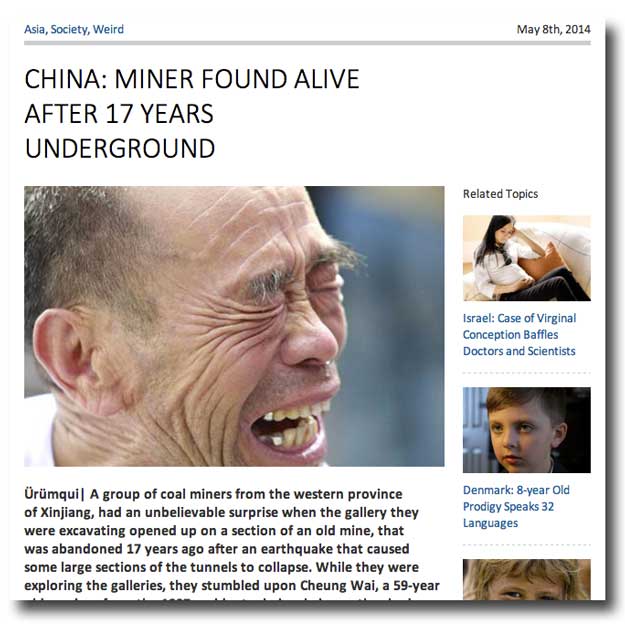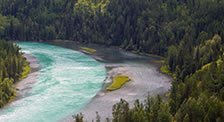(Fake) Story of Urumqi Miner Trapped 17 Years
For all the strengths and advantages of social media, users who fact-check stories before they share them has never been one of them.
Take, for example, the most recent story of a Urumqi, Xinjiang miner who was reportedly rescued after 17 years trapped underground.

This story, which for the past month I’ve seen circulated numerous times on Facebook and Twitter, goes like this:
A group of coal miners from the western province of Xinjiang, had an unbelievable surprise when the gallery they were excavating opened up on a section of an old mine, that was abandoned 17 years ago after an earthquake that caused some large sections of the tunnels to collapse. While they were exploring the galleries, they stumbled upon Cheung Wai, a 59-year old survivor from the 1997 accident, obviously in a rather bad shape. He was immediately taken to the hospital where a complete evaluation of his physical and mental states will be done over the next weeks.
Urumqi Miner Story is a Fake
Just to be clear, this story is absolutely, undoubtedly, 100% NOT true.
In a world where social proof is all that matters, facts are easily overlooked.”
Never mind that the lead photo was taken in Tokyo, not Urumqi. And let’s ignore for a moment that this satirical website has a disclaimer that states “All news articles…are fiction, and presumably fake news“.
Seriously, though…17 years?
I’d say that the story from two years ago about miners being trapped for 17 days was unbelievable, but on a scale from unbelievable fact to crazy fiction, this story doesn’t even register.
Yet in a world where social proof is all that matters, facts are often easily overlooked.
Just what kind of social proof are we talking about?
This particular article, as of May 27 (less than 3 weeks after publication) had 453,212 shares on Facebook, 3,976 retweets and 562 shares on Google Plus.

Honestly it makes me a little mad (which is why I’m not linking directly to their site) and I’m glad to see that Google Ads has suspended their ad account.
How do You Fact-Check?
If your Facebook feed is anything like mine, there are certain people you know who share any and everything that supports their particular agenda without regard for veracity. Am I right?
Personally, I take great care to fact-check anything that I post on the FarWestChina Twitter account as well as the FarWestChina Facebook page, but I thought I’d throw this question out to you and hear your response.





